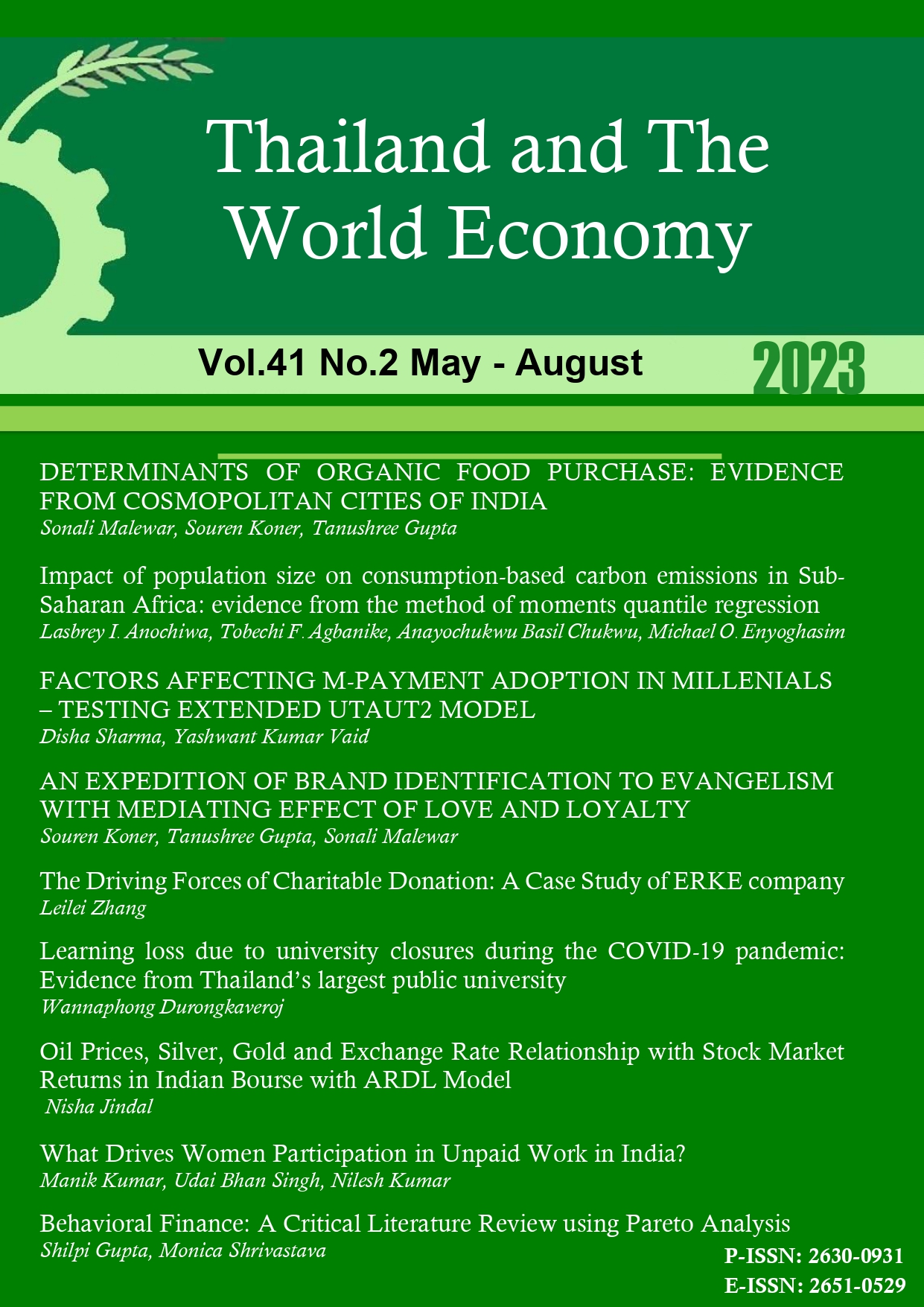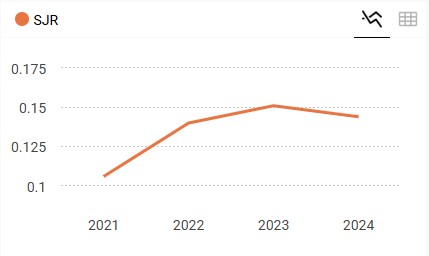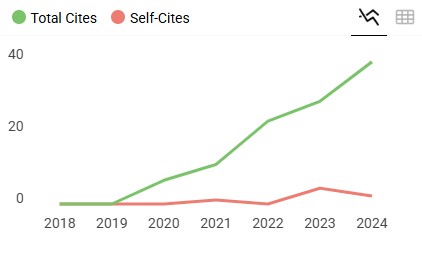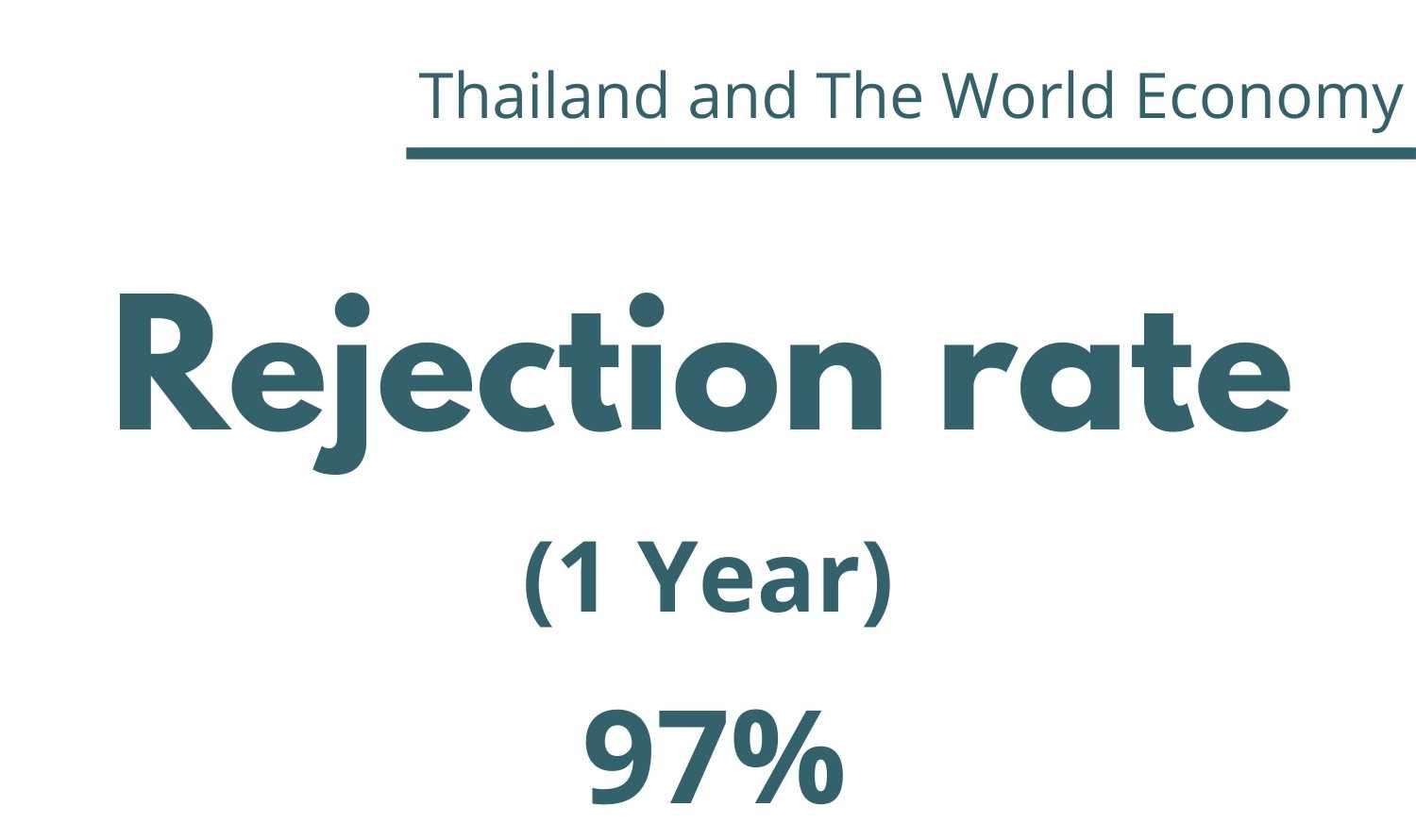Learning loss due to university closures during the COVID-19 pandemic: Evidence from Thailand’s largest public university
Keywords:
online learning , COVID-19 , higher education , academic performance , labor marketAbstract
The COVID-19 pandemic has affected all segments of the population, including college students in higher education institutions. This paper examines the survey of 400 undergraduate students at the largest public university in Thailand between March and June 2021 to identify the causal impacts of the COVID-19 pandemic on college students’ academic performance and expected labor market outcomes. The findings suggest a 0.27-point decline in semester-level GPA and a 2.5-hour decrease in weekly study hours. Additionally, students are found to delay graduation, withdraw from classes, and change their majors due to the COVID-19 pandemic. While the COVID-19 pandemic has lowered student’s reservation wages after graduation, such an impact is not statistically significant. In addition, students expect a significant decrease in their future financial assets at age 35. These significant negative impacts on academic performance and expectations for future employment are more pronounced among students from lower-income families. This paper provides evidence that the pandemic seems to worsen inequality in higher education.
References
Agostinelli, F., Doepke, M., Sorrenti, G., & Zilibotti, F. (2022). When the great equalizer shuts down: Schools, peers, and parents in pandemic times. Journal of Public Economics, 206.
Al-Samarrai, S., Gangwar, M., & Gala, P. (2020). The impact of the COVID-19 pandemic on education financing: Economic Impact of COVID-19. Washington, D.C.: World Bank.
Aristovnik, A., Keržič, D., Ravšelj, D., Tomaževič, N., & Umek, L. (2020). Impacts of the COVID-19 pandemic on life of higher education students: A global perspective. Sustainability, 12(20).
Aucejo, E. M., French, J., Araya, M. P. U., & Zafar, B. (2020). The impact of COVID-19 on student experiences and expectations: Evidence from a survey. Journal of Public Economics, 191.
Arcidiacono, P., Hotz, V. J., Maurel, A., & Romano, T. (2020). Ex ante returns and occupational choice. Journal of Political Economy, 128(12), 4475-4522.
Azevedo, J. P., Hasan, A., Goldemberg, D., Geven, K., & Iqbal, S. A. (2021). Simulating the potential impacts of COVID-19 school closures on schooling and learning outcomes: A set of global estimates. World Bank Research Observer 36(1), 1-40.
Barrot, J. S., Llenares, I. I., & del Rosario, L. S. (2021). Students’ online learning challenges during the pandemic and how they cope with them: The case of the Philippines. Education and Information Technologies, 26, 7321-7338.
Bird, K. A., Castleman, B. L., & Lohner, G. (2022). Negative impacts from the shift to online learning during the COVID-19 crisis: Evidence from a statewide community college system. AERA Open, 8.
Chen, T., & Lucock, M. (2022). The mental health of university students during the COVID-19 pandemic: An online survey in the UK. PLoS One, 17(1).
Chezhen, Y., Symonds, J., Devine, D., Mikolai, J., Harkness, S., Sloan, S., & Sainz, G. M. (2022). Learning in a pandemic: Primary school children’s emotional engagement with remote schooling during the spring 2020 Covid-19 lockdown in Ireland. Child Indicators Research, 15, 1517-1538.
Clark, A. E., Nong, H., Zhu, H., & Zhu, R. (2021). Compensating for academic loss: Online learning and student performance during the COVID-19 pandemic. China Economic Review, 68.
Copeland, W. E., McGinnis, E., Bai, Y., Adams, Z., Nardone, H., Devadanam, V., Rettew, J., & Hudziak, J. J. (2020). Impact of COVID-19 pandemic on college student mental health and wellness. Journal of the American Academy of Child and Adolescent Psychiatry, 60(1): 131-141.
Dhawan, S. (2020). Online learning: A panacea in the time of COVID-19 crisis. Journal of Educational Technology Systems, 49(1), 5-22.
Donitsa-Schmidt, S., & Ramot, R. (2020). Opportunities and challenges: Teacher education in Israel in the COVID-19 pandemic. Journal of Education for Teaching, 46(4), 586-595.
Engzell, P., Frey, A., & Verhagen, M. D. (2021). Learning loss due to school closures during the COVID-19 pandemic. PNAS, 118(17), 1-7.
Guangul, F. M., Suhail, A. H., Khalit, M. I., & Khidhir, B. A. (2020). Challenges of remote assessment in higher education in the context of COVID-19: A case study of Middle East college. Educational Assessment, Evaluation and Accountability 32(4), 519-535.
Giustinelli, P., & Shapiro, M. D. (2019). SeaTE: Subjective ex ante treatment effect of health on retirement. NBER Working Paper No. 26087. Retrieved from https://www.nber.org/papers/w26087.
Hale, T., Angrist, N., Goldszmidt, R., Kira, B., Petherick, A., Phillips, T., Webster, S., Cameron-Blake, E., Hallas, L., Majumdar, S., & Tatlow, H. (2021). A global panel database of pandemic policies (Oxford COVID-19 government response tracker). Nature Human Behaviour, 5, 529-538.
Hossain, M. (2021). Unequal experience of COVID-induced remote schooling in four developing countries. International Journal of Educational Development, 85.
Kapasia, N., Paul, P., Roy, A., Saha, J., Zaveri, A., Mallick, R., Barman, B., Das, P., & Chouhan, P. (2020). Impact of lockdown on learning status of undergraduate and postgraduate students during COVID-19 pandemic in West Bengal, India. Children and Youth Services Review, 116.
Khalil, R., Mansour, A. E., Fadda, W. A., Almisnid, K., Aldamegh, M., Al-Nafeesah, A., Alkhalifah, A., & Al-Wutayd, O. (2020). The sudden transition to synchronized online learning during the COVID-19 pandemic in Saudi Arabia: A qualitative study exploring medical students’ perspectives. BMC Medical Education, 20.
Kofoed, M. S., Gebhart, L., Gilmore, D., & Moschitto, R. (2021). Zooming to class?: Experimental evidence on college students’ online learning during COVID-19. IZA Discussion Paper No. 14356. Retrieved from https://www.iza.org/publications/dp/14356/zooming-to-class-experimental-evidence-on-college-students-online-learning-during-covid-19
Korkat, S., Kollmayer, M., Holzer, J., Luftenegger, M., Pelikan, E. R., Schober, B., & Spiel, C. (2021). Gender differences in digital learning during COVID-19: Competence beliefs, intrinsic value, learning engagement, and perceived teacher support. Frontiers in Psychology, 12.
Molato-Gayares, R., Suryadarma, D., Park, A., Thomas, M., Raitzer, D., & Vandenberg, P. (2022). How to recover learning losses from COVID-19 school closures in Asia and the Pacific. ADB Briefs No. 217. Retrieved from https://www.adb.org/publications/learning-losses-covid-19-school-closures
Montenegro, C. E., & Patrinos, H. A. (2022). A data set of comparable estimates of the private rate of return to schooling in the world, 1970-2014. International Journal of Manpower.
Moscoviz, L., & Evans, D. (2022). Learning loss and student dropouts during the COVID-19 pandemic: A review of the evidence two years schools shut down. Center for Global Development Working Paper No. 609. Retrieved from https://www.ungei.org/sites/default/files/2022-04/learning-loss-and-student-dropouts-during-covid-19-pandemic-review-evidence-two-years.pdf
Oinas, S., Hotulainen, R., Koivuhovi, S., Brunila, K., & Vainikainen, M.-P. (2022). Remote learning experiences of girls, boys and non-binary students. Computers and Education, 183.
Oyedotun, T. D. (2020). Sudden change in pedagogy in education driven by COVID-19: Perspectives and evaluation from a developing country. Research in Globalization, 2.
Ohnsorge, F., & Yu, S. (2021). The long shadow of informality: Challenges and policies. Washington, D.C.: World Bank. Retrieved from https://www.worldbank.org/en/research/publication/informal-economy
Patrinos, H. A., Vegas, E., & Carter-Rau, R. (2022). An analysis of COVID-19 student learning loss. World Bank Policy Research Working Paper No. 10033. Retrieved from https://openknowledge.worldbank.org/handle/10986/37400
Pokhrel, S., & Chhetri, R. (2021). A literature review on impact of COVID-19 pandemic on teaching and learning. Higher Education for the Future, 8(1), 133-141.
Psacharopoulos, G., & Harry, P. A. (2018). Returns to investment in education: A decennial review of the global literature. Education Economics, 26(5), 445-458.
Rodríguez-Planas, N. (2022). COVID-19, college academic performance, and the flexible grading policy: A longitudinal analysis. Journal of Public Economics, 207.
Suryaman, M., Cahyono, Y., Muliansyah, D., Bustani, O., Suryani, P., Fahlevi, M., Pramono, R., Purwanto, A., Purba, J. T., Munthe, A. P., Juliana, & Harimurti, S. M. (2020). COVID-19 pandemic and home online learning system: Does it affect the quality of pharmacy school learning?. Systematic Reviews in Pharmacy, 11(8), 524-530.
Takaku, R., & Yokoyama, I. (2021). What the COVID-19 school closure left in its wake: Evidence from a regression discontinuity analysis in Japan. Journal of Public Economics, 195.
UNESCO. (2022). Understanding access to higher education in the last two decades. Retrieved from https://www.iesalc.unesco.org/en/2020/12/23/understanding-access-to-higher-education-in-the-last-two-decades/
UNESCO. (2022). Statistics on higher education. Retrieved from http://data.uis.unesco.org/
Wiswall, M., & Zafar, B. (2021). Human capital investments and expectations about career and family. Journal of Political Economy, 129(5), 1361-1424.
Downloads
Published
How to Cite
Issue
Section
License

This work is licensed under a Creative Commons Attribution-NonCommercial-NoDerivatives 4.0 International License.










